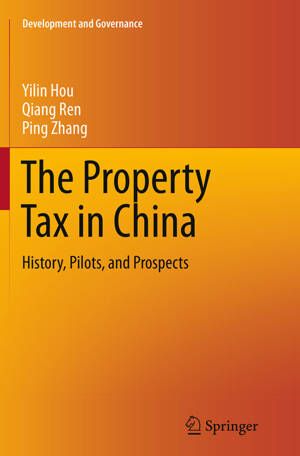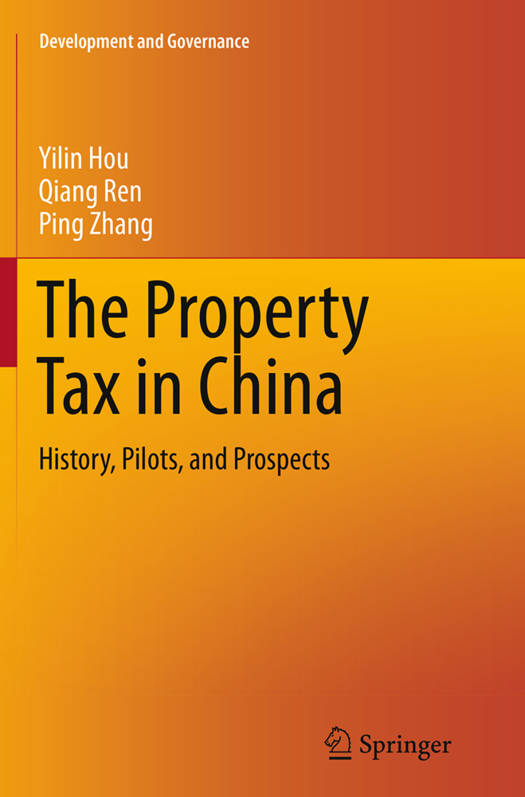
- Retrait gratuit dans votre magasin Club
- 7.000.000 titres dans notre catalogue
- Payer en toute sécurité
- Toujours un magasin près de chez vous
- Retrait gratuit dans votre magasin Club
- 7.000.0000 titres dans notre catalogue
- Payer en toute sécurité
- Toujours un magasin près de chez vous
52,95 €
+ 105 points
Format
Description
This monograph offers a detailed analysis of the creation, pilot implementation, and possible wide adoption of the real property tax at the local level in China. Starting in 2003, as China's economy gradually recovered from the Asian financial crisis that started in 1998, the real property market entered a period of rapid expansion, followed immediately by rampant speculation, rising housing costs, and official corruption. Over the last ten years, the price of real property in most cities has more than tripled, especially in metropolitan areas. In an effort to curb this, the government has instituted a number of property-market controls, including property tax pilot programs in Shanghai and Chongqing. While this is the latest of a number of fiscal reforms, it is a very important one that carries with it the ability to change the landscape of public finance, intergovernmental relations, and local governance in China. It represents a fundamental change in the provision of public services, the relationship between local governments and tax payers, and the status of localities in the government structure. Taking a public choice perspective, the authors argue that the local property tax should be used not solely as a means of controlling housing prices but should be fully employed as a fiscal and budgetary institution that will contribute to mitigating multifarious socio-economic problems resulting from economic growth, rapid urbanization, and widening income disparity. As this program is the first of its kind, so this book is the first detailed study of property tax in China; as such, it will appeal to researchers of public finance and public policy. It will also be of great interest to policymakers in China and in other countries that are considering adopting or reforming their versions of the local property tax. It fills the gap in a growing body of literature about the inner workings of Chinese economics and policy.
Spécifications
Parties prenantes
- Auteur(s) :
- Editeur:
Contenu
- Nombre de pages :
- 186
- Langue:
- Anglais
- Collection :
- Tome:
- n° 1
Caractéristiques
- EAN:
- 9783319383576
- Date de parution :
- 10-09-16
- Format:
- Livre broché
- Format numérique:
- Trade paperback (VS)
- Dimensions :
- 156 mm x 234 mm
- Poids :
- 294 g

Les avis
Nous publions uniquement les avis qui respectent les conditions requises. Consultez nos conditions pour les avis.






